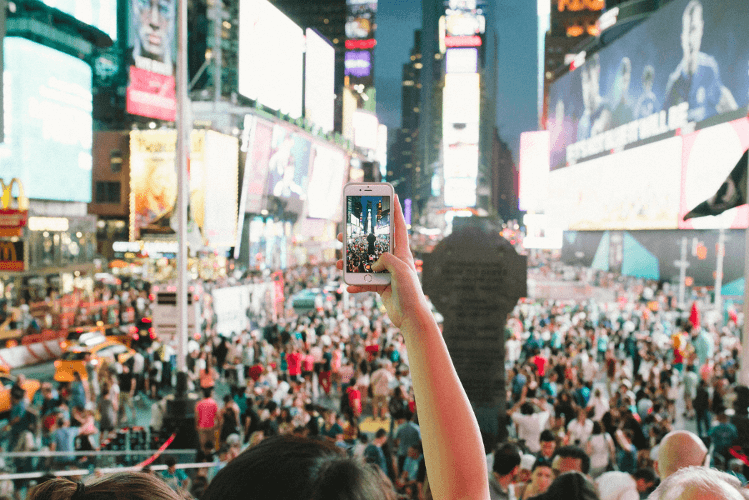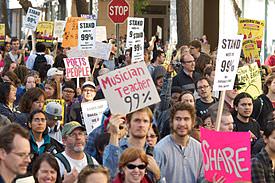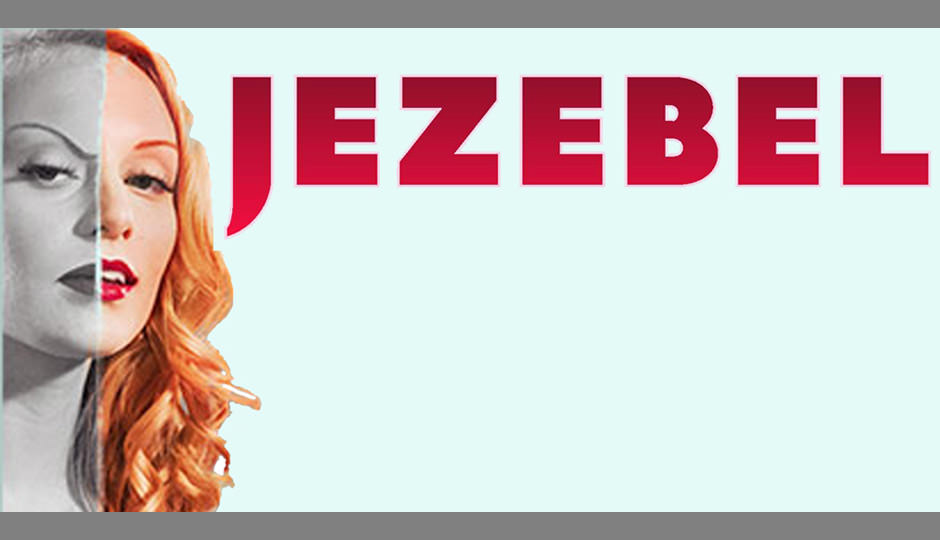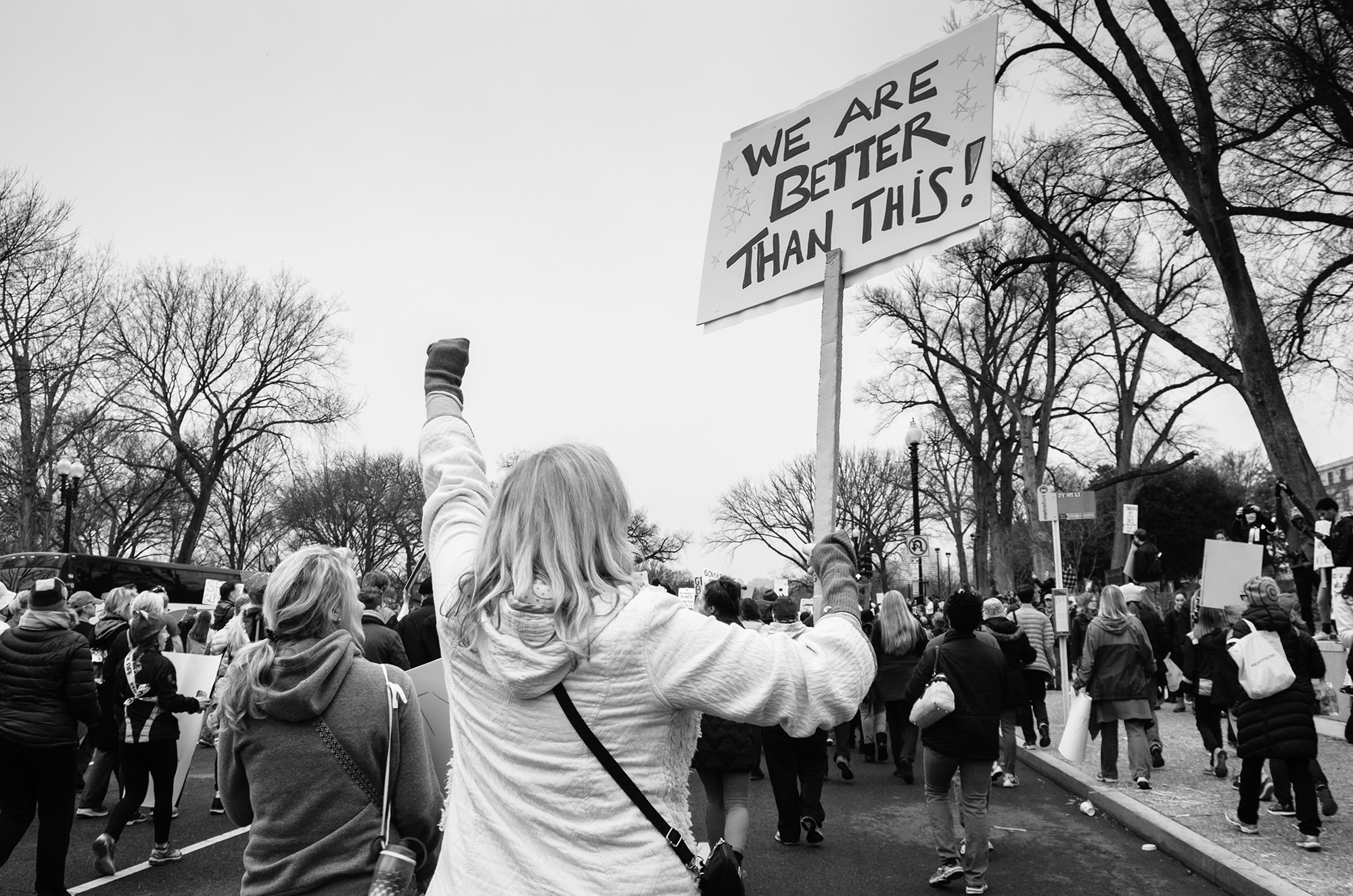Art and Culture
How the Social Justice Movement Fuels Corporate Capitalism
Issues such as unfair tax structures, government welfare towards banks and corporations, a lack of protection for the common citizen, and gaps in the social safety net are all social justice issues.

Before diving into a topic I’m sure will prove controversial, I want to start by clarifying that, as my other articles or my book Modern Sexuality can attest, I am very much pro-social justice. This piece is about how social justice has gone off the rails and been co-opted by capitalist or, dare I say, corporatist influences. Secondly, I am not anti-capitalist, in the sense of individuals having free rights to produce whatever product or service the market demands and receiving a fair price in return. Rather, I am opposed to unfettered, corporatist capitalism in which corporations create monopolies and influence politics and culture mainly to serve their business interests.

With that out of the way, let’s go back to the fall of 2008 to examine how the social justice movement lost its way. On September 24, then-President George Bush made a special appearance on TV to warn the American public that the economy was on the verge of collapse. Several weeks prior, investment bank Lehman Brothers had filed for bankruptcy, producing a domino effect and taking the rest of the financial industry down with it. On September 26, just two days after Bush’s live address, Washington Mutual also declared for bankruptcy. A few days later, the stock market collapsed, as the Dow Jones Industrial Average fell 770 points. On October 6, global markets collapsed as well.
From the ashes of this economic catastrophe, the newly elected Obama administration bailed out the banks with tax payer dollars, passed some watered-down regulations that could only scratch the surface of preventing a repeat outcome, and appointed to his cabinet the same Wall St oligarchs who had almost tanked the entire economy. In the end, not a single bank oligarch was prosecuted.

On September 17 2011, a group of activists coalesced in New York’s downtown Zuccotti Park to protest the lack of government and Wall Street accountability. This gathering came to be known as Occupy Wall St and branches subsequently formed in many other metropolitan areas around the world. In this milieu, memes such as “The Ballerina and the Bull” and “We are the 99%” were created. Let’s take a look at the second of these, “We are the 99%.” Notice the key word “We.” This inclusive message finds distinction in only one category—class. For it is only class that separates the 1% from the 99%. Occupy Wall St, initially completely ignored by the media, then gained some early momentum before withering and dying in the following bleak winter months.
Issues such as unfair tax structures, government welfare towards banks and corporations, a lack of protection for the common citizen, and gaps in the social safety net are all social justice issues. But somehow, in the following years, these issues have seemingly disappeared from the public conscience. Instead, social justice discourse now revolves around ideas of privilege that focus on race, gender, and sexual orientation—in short, everything but class. Is this a coincidence? Somehow an anomaly? Of course, we as a society must address concerns around racial and gender-based discrimination, but is it reasonable to assume that the children of Barack Obama and LeBron James are less privileged than the children of an unemployed white coal miner in West Virginia? Certainly, privilege is intersectional, as an individual may encompass a number of identities. But why no mention of class? When poor and lower-middle class individuals voted for Brexit and Trump, parts of the media responded with accusations of a “white lash.” But why no accusations of a “poor lash,” or “class lash”?
Turn on any mainstream news outlet and you will hear a clear and consistent narrative of a country polarized along racial and gender lines, but almost no mention of the role of class. Instead, the very wealthy 1% in the media, academia, and government (all fields dominated by members of the upper class) are also the most eager to embrace this new version of social justice.

Indeed, a polarized nation is exactly what a corporatist economy wants. It sells clicks online, eyeballs for television advertisers, and enough division and self-hatred to create an entire cadre of willing consumers, seeking to medicate themselves with conspicuous consumption. A message of 99%, on the other hand, is unifying. It creates cohesion, cooperation, and positive validation, and it turns the spotlight on those pulling the strings behind the curtain. But discussion of class privilege is dangerous, and must be curtailed at once. Race and gender privilege, by contrast, are quite safe to the powers that be, as they “Occupy Minds” rather than Wall St.

I’ll go a step further and state that the current version of the social justice movement is mainly a convenient and useful vehicle for our corporatist system. Sheryl Sandberg, the COO of Facebook, advises women to “lean in”; this is how her book of the same title advises women to succeed in their careers. In her view, feminism is equated with corporate success. But what if some women (or men) don’t want to buy into the corporate system? Feminist Susan Faludi has criticized Sandberg for “encouraging women to promote themselves individually as ‘marketable consumer object[s]’ for professional advancement.” The wage gap is often brought up as a key example of female oppression, but studies show this gap is mainly due to female workplace choices (types of jobs, hours worked, etc) rather than systemic bias. It is telling that a key talking point of gender-based social justice revolves around corporate success.
Feminist Camille Paglia, in her new book Free Women, Free Men: Sex, Gender, Feminism, criticizes the “elitist garbage” and condescending attitudes toward the blue-collar lower class prevalent in academic circles. These academics happily focus on male privilege, even as they snark at those who plow the snow, fix ruptured sanitation pipes, and wash skyscraper windows. Paglia finds no humility or appreciation, let alone any empathy, for individuals doing dangerous jobs that make the lives of the wealthy easier. In the remote world of academic elites, class privilege isn’t considered important.

Best-selling author Nassim Taleb has written in a similar vein about what he calls the “Intellectual Yet Idiot.” These idiot intellectuals are the 1% in the media, academia, and government who advocate for policies that may adversely affect the rest of the country, and do so from a position of comfort and privilege and without having to worry about the consequences. On issues like international trade agreements or immigration policies or crime and discord in urban communities, these modern-day aristocrats have “no skin in the game.” Instead they are happy to denigrate the lower classes as ignorant buffoons—the “basket of deplorables” to which Hillary Clinton infamously referred.
In this way, the 1% has found a very effective strategy to maintain and reinforce its privilege. Intersectional privileges, while important, are secondary to class privilege but they drum up enough internal division to distract from the original goals of the social justice movement. In this way, the 1% is no longer the enemy; they are the friends and benefactors of all downtrodden people around the world. The enemy is other poor and disenfranchised people.

Keep bashing “the system” while blogging on your expensive Apple laptop in Starbucks and continue your social media advocacy on publicly traded Twitter. Meanwhile, the rich get richer and the poor get poorer, and the elite get a hall pass because they are “woke.” Is it any wonder that the Far Left (and I’m saying this as a liberal) voted en masse for the most corrupt corporatist politician of all time, Hillary Clinton? She said all the right things, who cares if she took $20 million from homophobic, misogynistic countries like Saudi Arabia? I’m not saying Trump is any better, and many of his ideas are truly dangerous, but I don’t believe he would have won if the Democrats hadn’t trotted out a corporatist shill. (What happened to Bernie?)
In many ways, the current Democratic Party is a coalition of two very separate, but now oddly unified forces—social justice and corporatism. As a society, we deserve better than that. We deserve real justice, the kind that is both progressive and unifying. Based on people. Not corporations.






